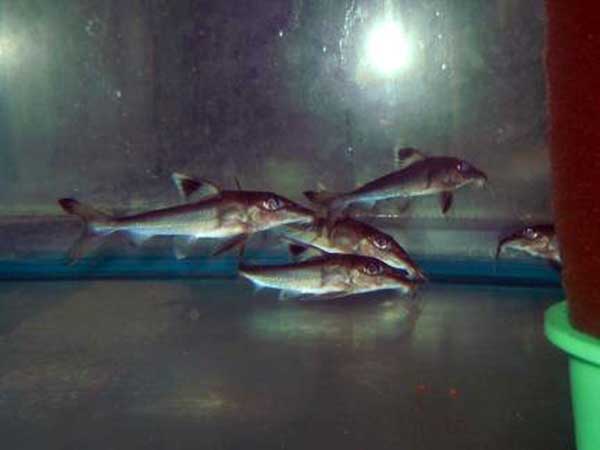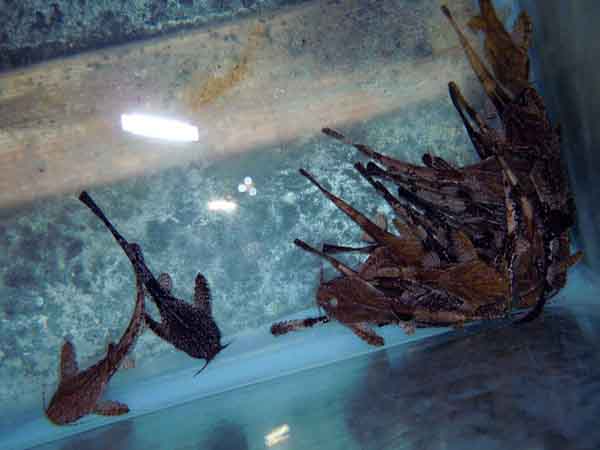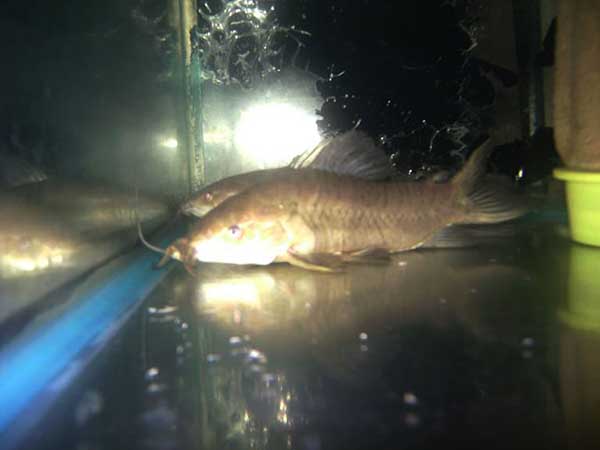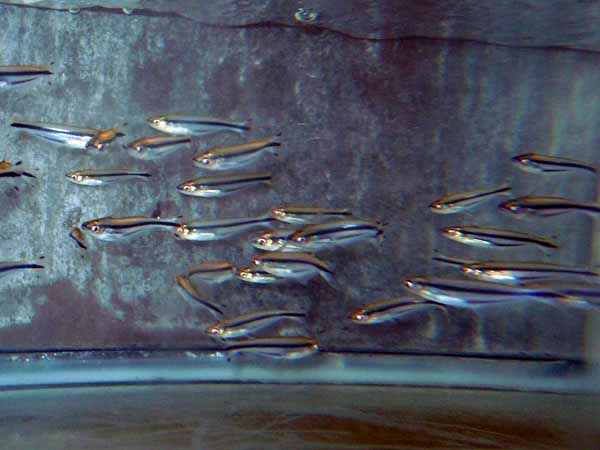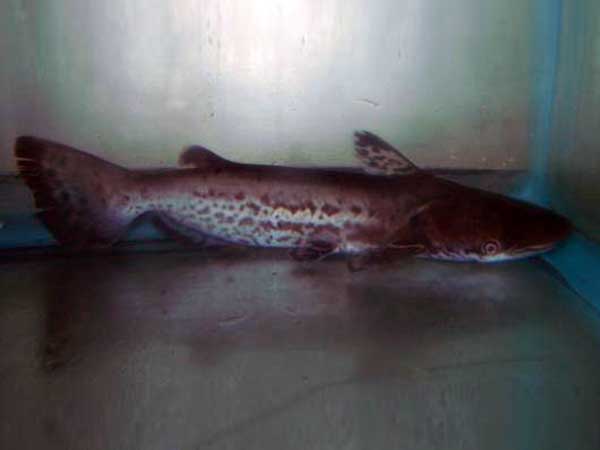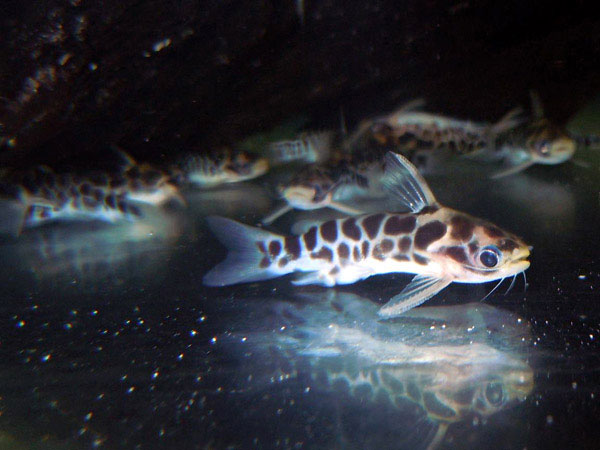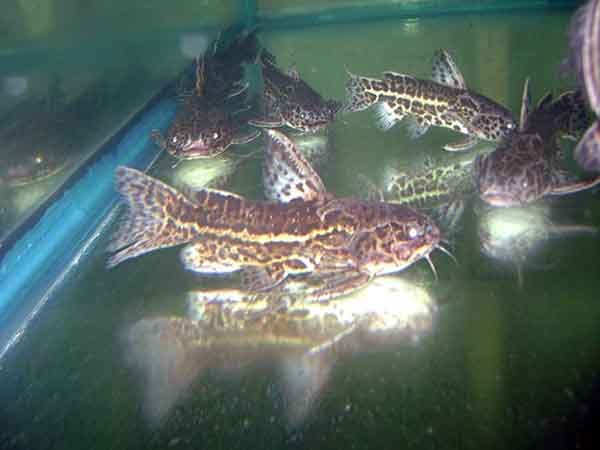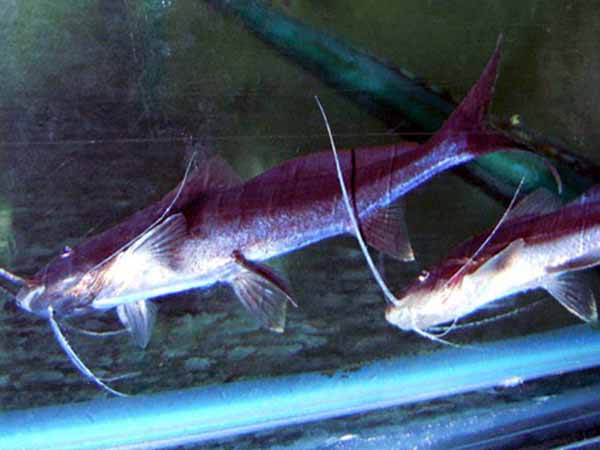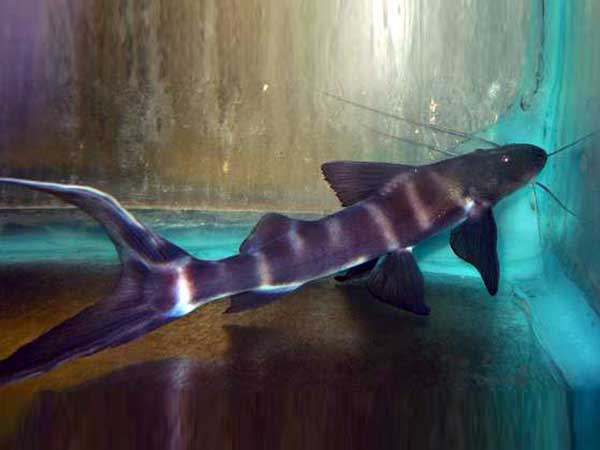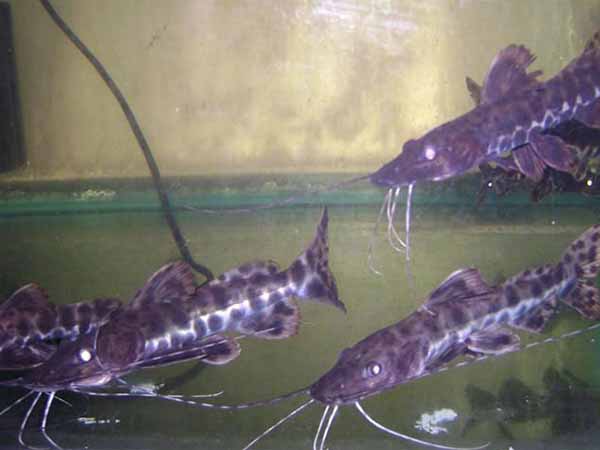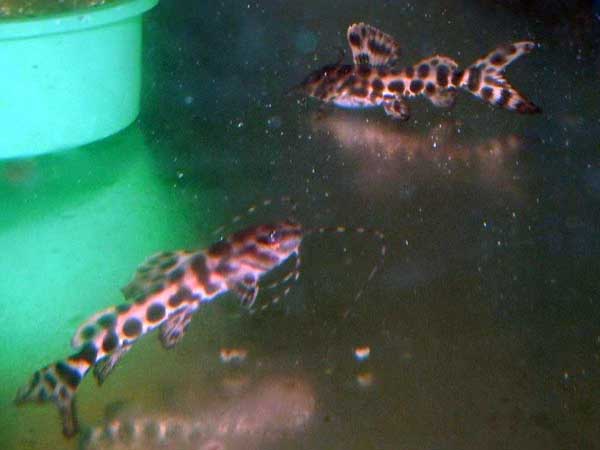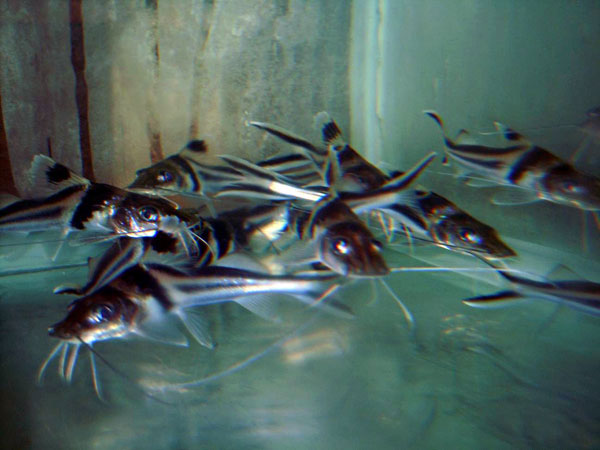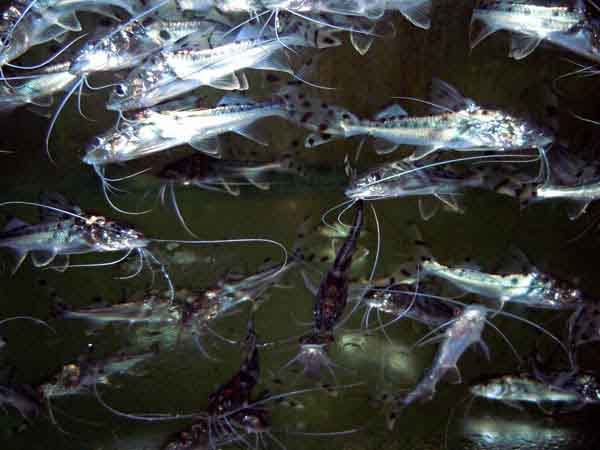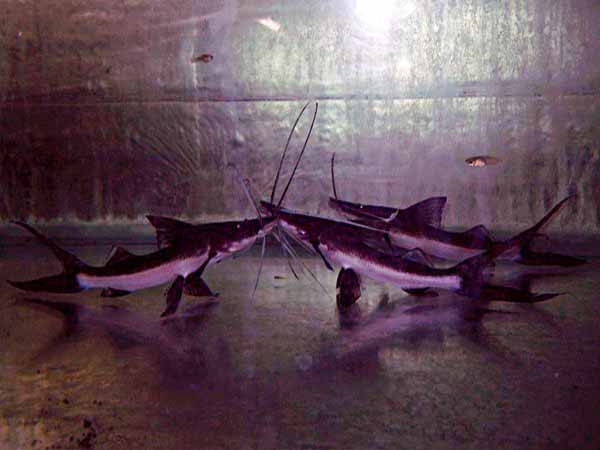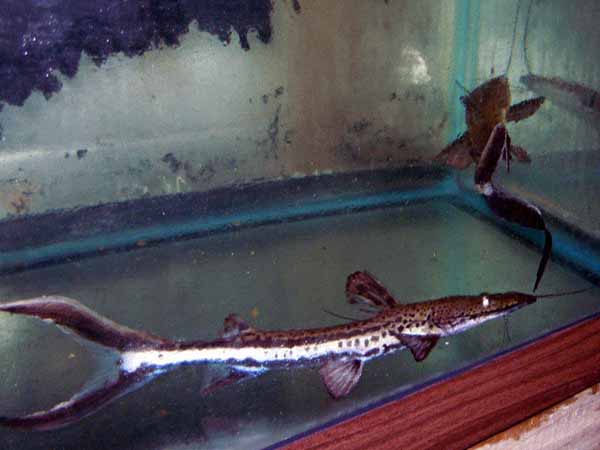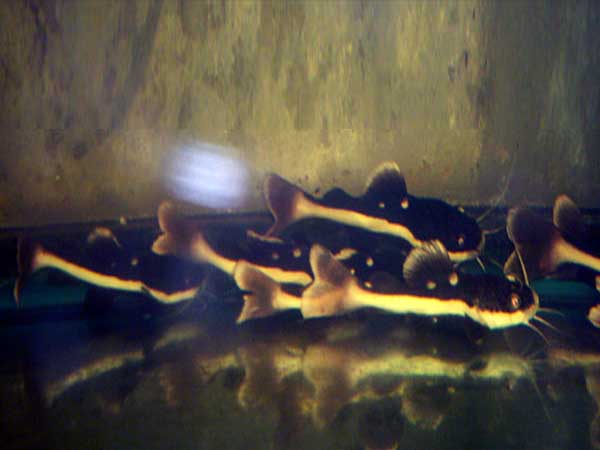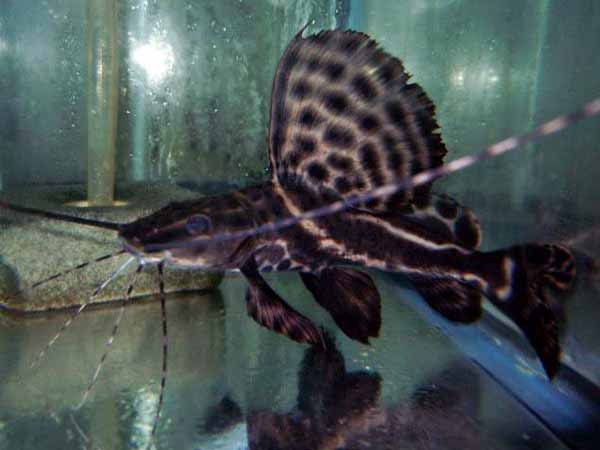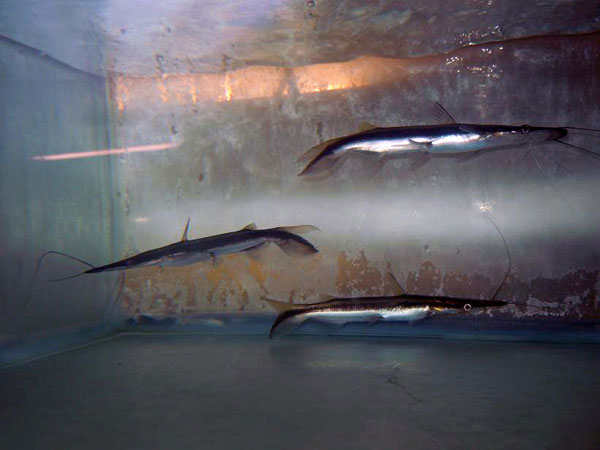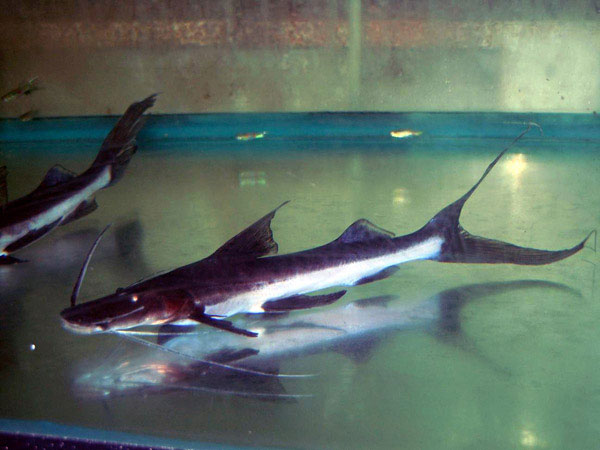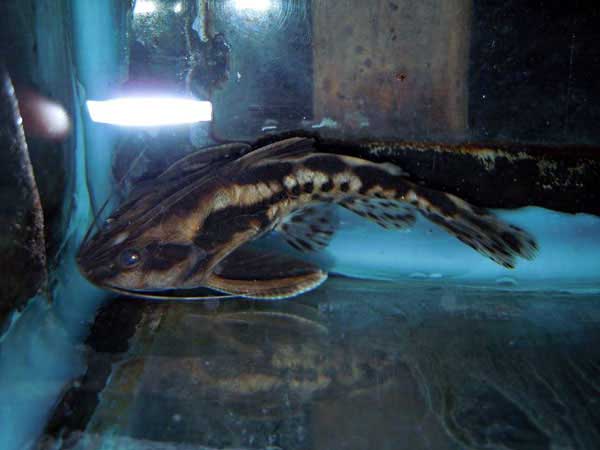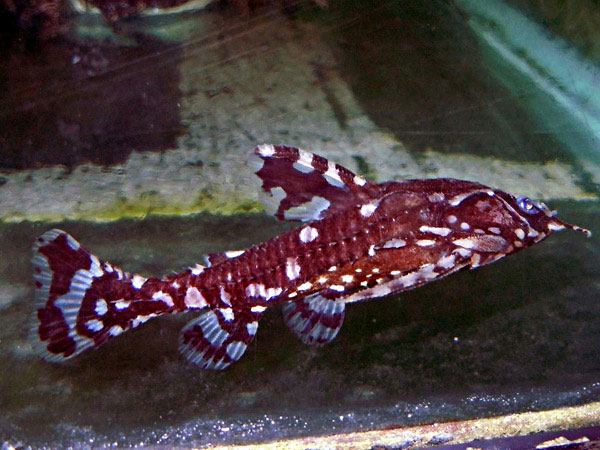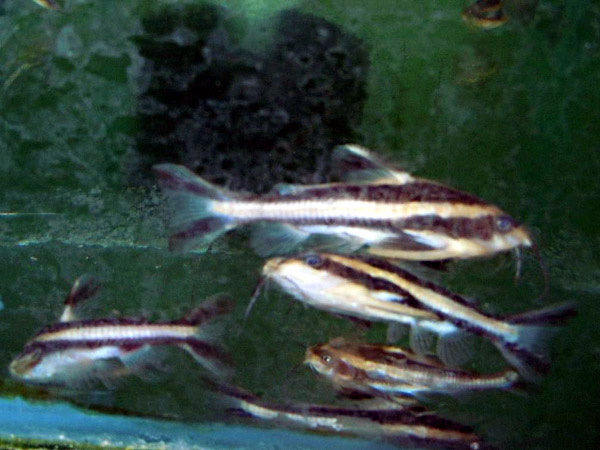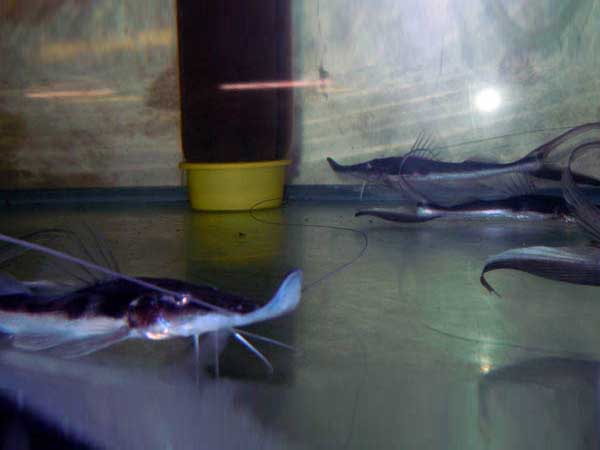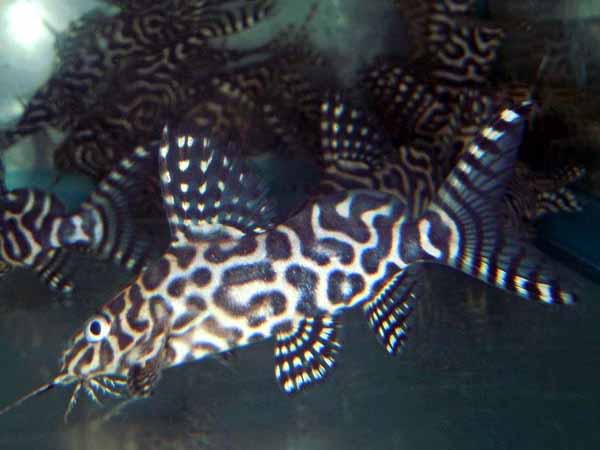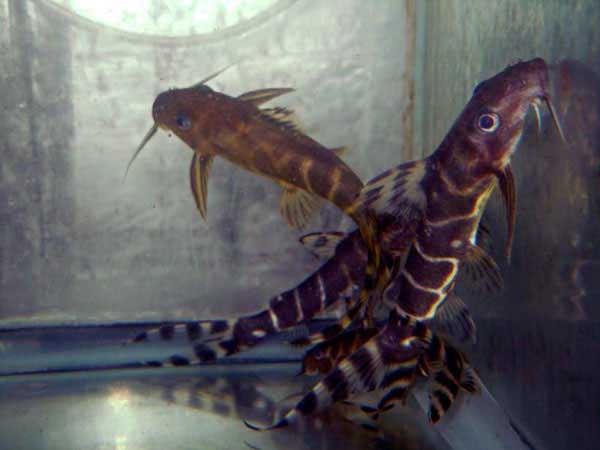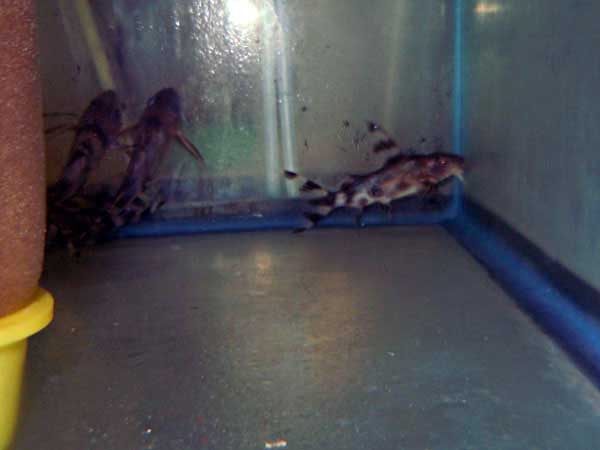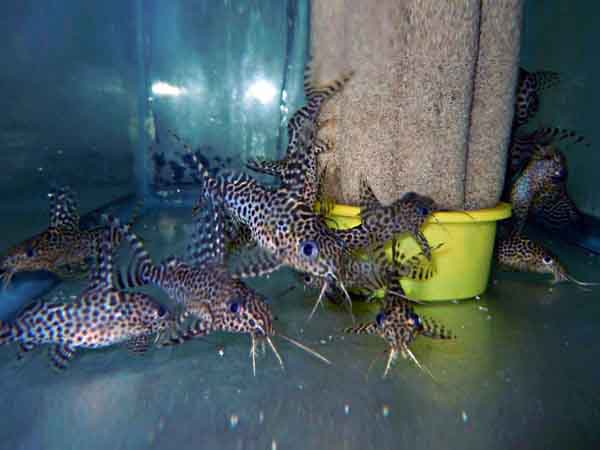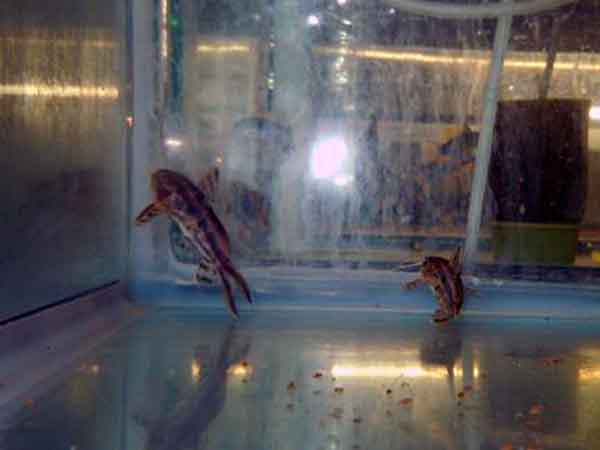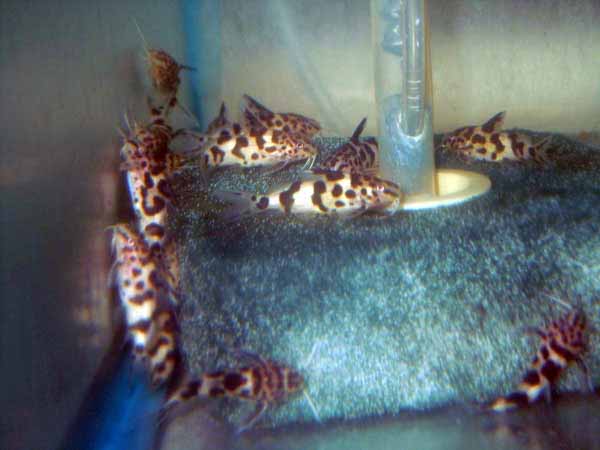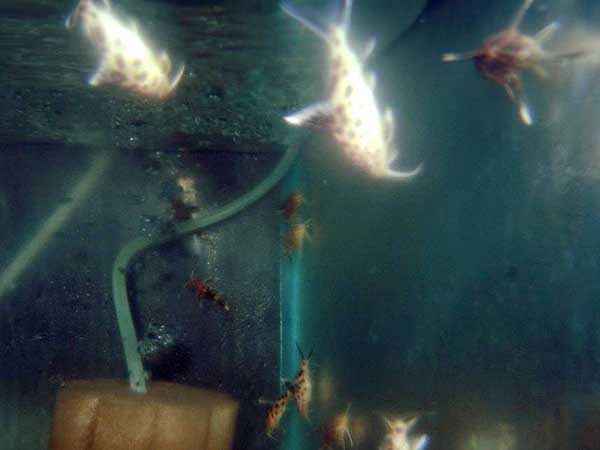Tropical Freshwater Catfish (Pimelodidae)
As far as catfish go, pimelodids are far more "eat 'em uppers" than cleaner uppers, with even small species possessing and utilizing relatively large mouths to suck up their tankmates, particularly at night. And some of this families members are amongst the largest of freshwater fishes, reaching several feet in length, and quickly so under propitious aquarium conditions. There are only a few "rules" to abide by in the keeping of pimelodids; selection of initially healthy stock, some basic water quality provision, avoidance of toxic, but common medications. Here we'll detail the more common species available, their simple husbandry and some pointers on what to avoid in their aquarium care.
For those who thought they knew about all because they've seen a striped and pictus catfish, a really big red-tailed cat, a shovel nose and crosses of the same, you're in for a bit of a shock. This Central and South American and some of the larger Caribbean islands catfish family is composed of some 56 genera and 300 and counting species. Pimelodids are characterized as possessing a pair of long maxillary/upper barbels/whiskers and two pair of shorter mandibular ones, naked (scaleless) bodies, possess elongated adipose fins, and importantly possessing or not stout spines on the anterior of their dorsal and pectoral fins (more about the latter below).
Size-wise: Whereas some of the smaller pimelodids max out at a few inches in length (genus Microglanis), the not-uncommonly offered Red Tailed Cat, Phractocephalus hemilopterus can grow to more than 4 foot in length, and Zungaro zungaro at five are dwarfed by the giant of the family, Brachyplatystoma filamentosum at about 3 meters.
Selection: Know Your Species! Planning ahead: Tank size, shape and tankmates.
These catfish are demersal, spending almost all their time on the bottom, at times being quite active during the day, but principally hunting for food by dark of night. They prefer larger quarters that are aquascaped in such ways that allow them to turn around easily and get out of bright lighting. We mention this here to forewarn folks who might want to acquire pimelodids that they will do well only in this sort of setting.

